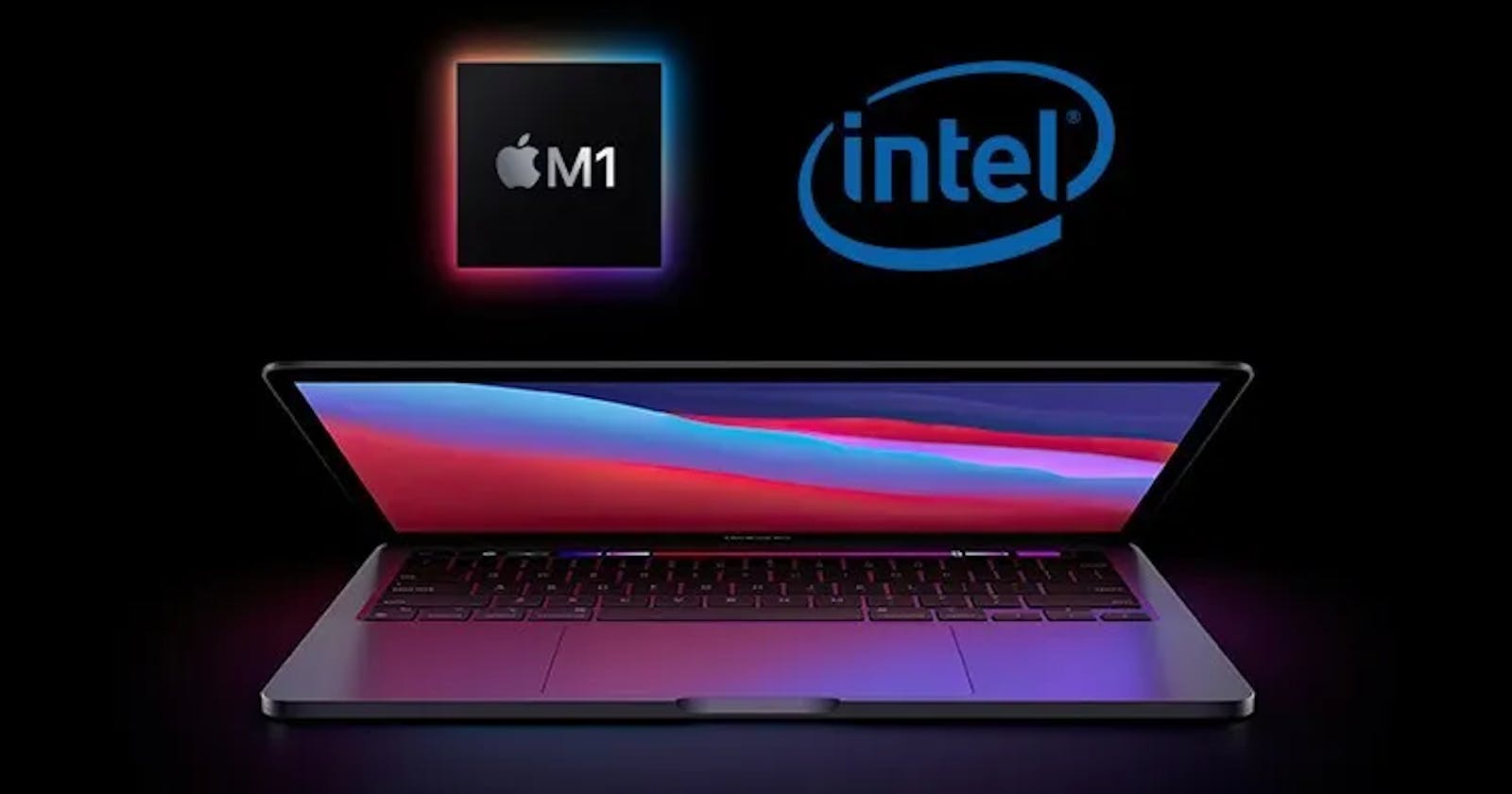Introduction
Welcome to Macfreaks, where finding your MacBook starts with understanding its core. Today, Apple offers a choice: Intel or Apple silicon chips? Deciding is important, and at Macfreaks, we're here to help.
Choosing a MacBook isn't just about its design or the latest model. It's about picking the engine that powers your digital world.
In this guide, we'll dive into Apple's processors, explaining the differences between the familiar Intel and the innovative Apple silicon chips. We'll show you what each one can do, helping you decide with confidence.
At Macfreaks, we're not just selling devices; we're here to make sure you find the MacBook that suits your needs. Whether you're a creative or a business person, this guide will be your friend, guiding you through MacBook processors.
Understanding the Core Differences
Delving into the heart of MacBook processors - Intel and Apple silicon chips - reveals two distinct technological paths.
Intel Processors
Intel processors have been the cornerstone of MacBooks for a long time. They've established a reputation for compatibility and reliability. These processors are robust and have supported a wide range of applications over the years. Users accustomed to Intel-powered MacBooks appreciate their ability to seamlessly run various software, making them a popular choice among professionals and everyday users alike.
Apple silicon Chips
Apple's introduction of the its silicon chips marked a significant shift in MacBook processors. These chips are the result of Apple's endeavor to create a highly optimized, in-house system-on-a-chip (SoC). The Apple silicon chips boast remarkable performance, power efficiency, and integration. They leverage a blend of high-speed processing and energy efficiency, offering a new level of performance while maintaining longer battery life.
Understanding the Differences
In terms of performance, Apple silicon chips have showcased substantial gains in speed, especially in tasks that involve intense processing, like video editing, graphic design, and software development. They bring a new level of efficiency, enabling MacBook users to experience quicker response times and smoother multitasking.
Should I still buy an Intel Mac right now?
The main reason to buy a Intel Mac model right now is if you need it for a specific task that isn’t supported by
Apple silicon processors, which leaves you to choose between the Intel Mac Mini, the Mac Pro, or older models of the MacBook Air and MacBook Pro. at macfreaks we offer variety of model and its best condition that suits all your need & requirements.
You might consider an Intel Mac if you make extensive use of professional apps that haven’t been updated yet and you need those apps to run quickly right out of the box (many of Adobe’s apps, including Premiere Pro, Photoshop, Lightroom, Illustrator, and InDesign, have been optimized for Apple silicon as of Spring 2022).
Intel Macs will continue to receive at least some new macOS features “for years to come,” and they won’t suddenly become bad now that Apple is changing processors. If you have an Intel Mac you’re happy with, especially one released in 2018 or later, you don’t need to run out and upgrade. But if you’re able, you should definitely put off buying any new Macs until you can buy one with Apple silicon in it.
Why should I buy Apple Silicon?
The Apple silicon Macs that Apple has released so far have been very good—as fast as or faster than the Intel Macs they replace, but with much better battery life (for laptops) and lower power usage (for desktops). The 24 inch iMac and the 14- and 16-inch MacBook Pros also received more comprehensive redesigns and updates like added ports and better screens.
Choosing between apple silicon chips is in itself a different topic, but here are the important points you need to consider before making a decision.
Choosing the Right Chip: Selecting the appropriate chip involves considering your specific needs:
For regular computing needs like web browsing, emailing, or word processing, the M1, M2, or M3 chips serve well. Those requiring a bit more performance for slightly demanding tasks can opt for the M1 Pro, M2 Pro, or M3 Pro variants. Meanwhile, if your work revolves around image processing, video editing, graphic design, or gaming, the M1 Max, M2 Max, or M3 Max chips offer better graphics performance. Finally, for the most demanding professional workflows needing the highest performance, the M1 Ultra or M2 Ultra are the most suitable choices.
Overall, if you are new to Apple silicon and are still not sure which chip to buy, use the following rationale:
Buy M1, M2, or M3 if... you need a good balance of price, performance, and battery life and have normal day-to-day computing requirements.
Buy M1 Pro, M2 Pro, or M3 Pro if... you need a performance-focused chip for slightly more intense workflows.
Buy M1 Max, M2 Max, or M3 Max if... you need additional graphics performance for working with images, videos, graphic design, or games.
Buy M1 Ultra or M2 Ultra if... you need the best possible overall performance for extremely intense professional workflows.
It is generally not worth upgrading from any of the individual M1 chips to their direct successors and it may be better to wait for Apple to launch the M4 series of chips at some point in the next couple of years before upgrading if you are already an M2 user.
Making the Right Choice
When considering which processor to opt for in a MacBook, it's crucial to weigh your requirements. If you prioritize compatibility with a vast software library and have established workflows reliant on Intel architecture, an Intelpowered MacBook might be preferable. Alternatively, if you're attracted to cutting-edge performance enhancements, improved energy efficiency, and the promise of future optimisations, an Apple silicon-powered MacBook might better suit your needs.
Usage Requirements
Regular Tasks: Consider your primary usage. If it involves daily tasks like web browsing, email, word processing, or light photo editing, both Intel and Apple silicon chips suffice.
Specialized Tasks: For specialized applications such as video editing, 3D rendering, or high-end gaming, evaluate which processor better accommodates these needs.
Software Compatibility
App Availability: Determine if the software you rely on is optimized for Apple silicon chips. Check the compatibility list for potential software conflicts.
Transition Phase: Understand that while the future favors Apple silicon, some applications might still work optimally on Intel in the short term due to ongoing software updates.
Performance Expectations
Raw Power: Assess whether you prioritize raw power or battery efficiency. Apple silicon chips excel in efficiency, whereas certain Intel models might offer more brute processing power.
Longevity: Consider the longevity of the device. Apple silicon chips are the future of Apple, and newer software and updates will be optimized for this architecture.
Budget Considerations
Price: Check the pricing of both Intel and Apple silicon-based MacBooks. Evaluate whether the premium for the newer Apple silicon chip is justifiable based on its performance advantages.
Long-Term Investment: Think of your MacBook as a long-term investment. Consider whether the Apple silicon chip's future-proofing is worth the initial cost.
Conclusion
At Macfreaks, we understand that choosing the right Apple chips can be daunting. Our diverse selection includes various generations of Apple silicon and intel chips, each catering to different needs.
Explore Our Selection: From the apple silicon to intel, our range covers every requirement.
Consider Your Needs: Whether it's everyday tasks, performance-focused work, graphics-intensive projects, or ultra-professional workflows, there's a chip suited for you.
Expert Advice: Not sure which one to pick? Reach out to our knowledgeable team for guidance in making an informed decision.
Links
Explore our wide selection of used Apple products: Macfreaks Products
Contact us for any inquiries or assistance: Contact Macfreaks
Read testimonials from our satisfied customers: Customer Testimonials
Visit our FAQ section for answers to common questions: Macfreaks FAQs
We are active on instagram: macfreaks_mumbai
Recent Posts

